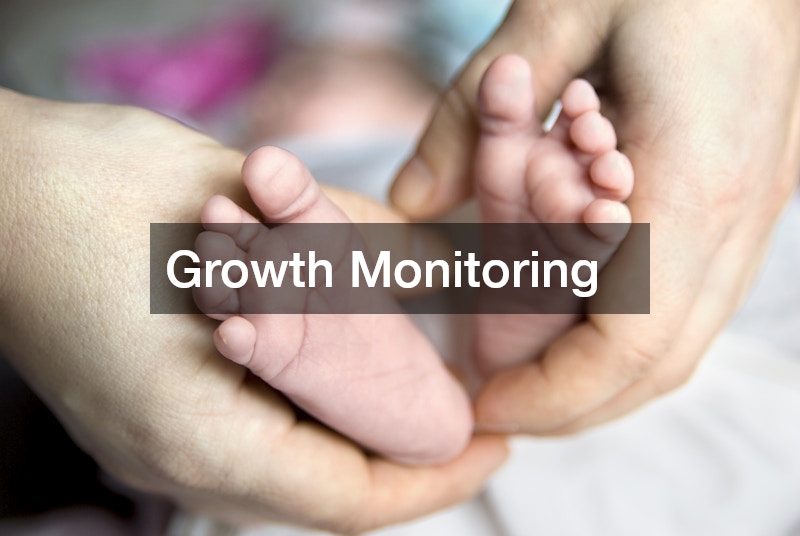Newborns with Down syndrome may have unique developmental needs due to the genetic differences associated with the condition. Understanding and addressing these needs early on can positively impact their growth and development. This article explores common questions regarding caring for newborns with Down syndrome.
Muscle Tone and Physical Therapy
Newborns with Down syndrome often experience hypotonia or low muscle tone, which can make it challenging for them to achieve normal motor milestones. Early physical therapy plays a crucial role in addressing these challenges by implementing targeted exercises designed to improve muscle strength and coordination.
It’s important for parents to collaborate with specialists to create a tailored physical therapy plan that suits their child’s needs.
Physical therapists use techniques such as tummy time and sensory stimulation to engage the infant’s muscles in a safe and effective manner. These activities are not only vital for enhancing physical development but also support cognitive and social growth. Research indicates that consistent physical therapy can significantly improve motor skills in children with Down syndrome, encouraging greater independence as they grow.
Additionally, parents can play a supportive role by continuing exercises at home as recommended by their healthcare team. Engaging with the baby through playful, muscle-strengthening activities can also aid in their development. It is important to remain patient and celebrate small milestones, as progress may occur at a different pace compared to typically developing children.
Feeding and Nutrition
Feeding challenges in newborns with Down syndrome are common due to poor sucking reflex and hypotonia, which can lead to nutritional concerns. Consulting with a pediatric dietitian is essential to create a feeding plan tailored to the infant’s needs. Specific feeding techniques, such as paced bottle feeding, can help ensure the baby receives adequate nutrition and gains weight appropriately.
Addressing these challenges early can prevent potential complications such as malnutrition and dehydration. The involvement of a speech or occupational therapist can further enhance feeding abilities by improving oral motor skills. Supporting the child with the right tools and techniques empowers not only their physical growth but also supports their overall well-being.
Introducing diverse textures and flavors carefully as the baby grows is important for developing their palate, while still considering individual dietary needs and preferences. Regular weight and growth monitoring help ascertain the effectiveness of the feeding plan. All these efforts contribute to building a strong foundation for healthy growth and development.
Growth Monitoring
Regular monitoring of growth parameters is critical for newborns with Down syndrome, as they typically have unique growth patterns compared to their typical peers. Pediatricians often use special growth charts specifically developed for children with Down syndrome to better track changes in weight, height, and head circumference. These measurements provide important information about a child’s overall health and guide any necessary interventions.
Frequent check-ups allow healthcare providers to address concerns promptly, facilitating timely interventions that can significantly improve outcomes. For instance, monitoring helps identify issues such as failure to thrive or obesity early, ensuring appropriate nutritional and medical guidance. Regular growth assessments can also reassure parents about their child’s progress and help set realistic developmental expectations.
It’s essential for parents to maintain open communication with their healthcare provider regarding growth observations and concerns. Being vigilant and proactive in attending appointments contributes to comprehensive care and optimal support for their child’s development. Ensuring that care is personalized based on the child’s specific needs fosters an environment where the child can thrive.
Regular Health Screenings
Frequent health screenings are necessary to monitor potential medical issues such as heart defects and thyroid dysfunction, which are more common in newborns with Down syndrome. Regular check-ups allow healthcare providers to detect and manage conditions early, reducing the risk of complications. Comprehensive screenings may include echocardiograms, blood tests, and hearing evaluations, tailored to the child’s unique health profile.
Proactive identification of health conditions facilitates timely intervention, often resulting in improved long-term outcomes. For instance, early management of congenital heart disease can significantly influence physical development and quality of life. These consistent evaluations ensure that developmental and health milestones align with appropriate medical care and interventions.
Effective communication between caregivers and healthcare providers is vital in ensuring all concerns are addressed. Open dialogue encourages parents to express their observations regarding the child’s health, feeding, or behavior, which can be insightful for medical assessments. Together with health specialists, families can build a comprehensive care plan that provides ongoing, personalized healthcare.
Collaboration with Healthcare Specialists
Establishing a healthcare team that understands the specific needs of a child with Down syndrome ensures comprehensive care. Collaborative care involves the coordination between various specialists, such as pediatricians, cardiologists, endocrinologists, and therapists, to create an integrated approach tailored to the child’s needs. This teamwork fosters a supportive healthcare environment where all aspects of the child’s health are managed cohesively.
Effective communication among healthcare professionals ensures that all interventions are aligned and focused on optimal outcomes. Collaborative care often requires regular discussion and updates regarding the child’s health status, developmental progress, and family support needs. Parents’ active participation in these discussions provides critical insights that shape care decisions, further reinforcing a collaborative approach.
Building a comprehensive healthcare team from the outset and establishing a coordinated care framework paves the way for consistent and thorough monitoring. As the child grows, the team can adapt interventions to meet evolving needs, ensuring that care remains relevant and effective. Ultimately, this collaboration not only elevates the standard of care but also nurtures an environment that fosters continued development and well-being.
Caring for a newborn with Down syndrome involves understanding their unique developmental needs across physical, cognitive, and medical domains. Early interventions and a proactive approach in collaboration with healthcare providers can greatly enhance their development and quality of life. Through structured programs, supportive therapies, and coordinated medical care, infants with Down syndrome can thrive, achieving their fullest potential.
.








